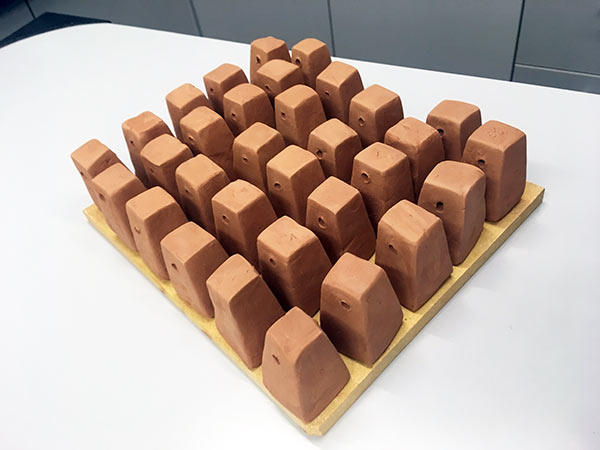
The Geoarchaeology of Classical Greek Housing
Fitch Laboratory Bursary holder (2019-20) Mara Schumacher, integrates geoarchaeology and Classical Greek archaeology to investigate domestic life at Olynthos.

Fitch Laboratory Bursary holder (2019-20) Mara Schumacher, integrates geoarchaeology and Classical Greek archaeology to investigate domestic life at Olynthos.

Earlier this year the BSA hosted a half day international symposium titled “Distant Seas, connected worlds: Tintagel, Britain and Greece in Late Antiquity”. In this blog post Jacky Nowakowski (Project Director TCARP) and Win Scutt (English Heritage) share their experience of the event and their time at the BSA.

A short account of Bartek Lis’ visit to traditional potters in the Volos area.

Natalie Abell (University of Michigan) reports on her study of ceramics from Ayia Irini (Kea) at the Fitch Lab that provided new insights into both exchange and local production of pottery over ca. 1000 years, from mid-Early Bronze Age to mid-Late Bronze Age.

Assistant Professor Efi Nikita outlines her recent collaboration at the Fitch exploring human mobility through the study of dental nonmetric traits.

In the winter of 2018 I spent six weeks at the Fitch Laboratory analysing Late Geometric to Archaic pottery from the Sanctuary of Artemis Hemera, in Arcadian Lousoi.

A database of c. 10 000 loom weights and spindle whorls from across the north Mediterranean can bring much knowledge, as well as new questions about ancient cloth manufacture. This is some of the data our team at the ERC project PROCON have collected over the past five years in order to study textile production in Mediterranean Europe between c. 1000–500 BC.

The proceedings of the 13th European Meeting on Ancient Ceramics (EMAC) have just been published!

The 2018 Ceramic Petrology Group Meeting was hosted by the Competence Center Archaeometry – Baden-Wuerttemberg University of Tübingen. It was a wonderful event at which a series of excellent papers and posters were presented and with plenty of opportunities to meet new students, returning friends, and colleagues.

Punic amphorae found in the ancient city of Corinth are the focus of a research initiative that is being carried out at the Fitch Laboratory this year. Leandro Fantuzzi, Ceramic Petrology Fellow for the ‘Corinth Punic Amphora Building Project’ is conducting petrographic and elemental analysis of these amphorae, in collaboration with Noemi S. Müller and Evangelia Kiriatzi.
Certain cookies enable basic functions like page navigation and access to secure areas of the website. The website cannot function properly without these cookies.
NSC_ – Used to ensure traffic and user data is routed to the correct locations where a site is hosted on multiple servers, so that the end user has a consistent experience.
viewed_cookie_policy – Used to remember whether a visitor has “accepted” the cookie policy. If set, it contains the word “yes”.
This website uses Google Analytics, a web analytics service provided by Google, Inc. (“Google”). Information about your use of this website, including your IP address, may be transmitted to Google and stored on their servers. We use the information to compile reports and to help us improve the website. The following cookies collect information in an anonymous form.
_gid – Registers a unique ID that is used to generate statistical data on how the visitor uses the website.
_ga – Registers a unique ID that is used to generate statistical data on how the visitor uses the website.
_gat – Used by Google Analytics to throttle request rate.
This website uses YouTube to deliver video content. YouTube sets cookies to track usage of its services. The following YouTube Cookies are only installed when you play a video.
GPS – Registers a unique ID on mobile devices to enable tracking based on geographical GPS location.
VISITOR_INFO1_LIVE – This cookie is set by Youtube to keep track of user preferences for Youtube videos embedded in sites; it can also determine whether the website visitor is using the new or old version of the Youtube interface.
YSC – Registers a unique ID to keep statistics of what videos from YouTube the user has seen.